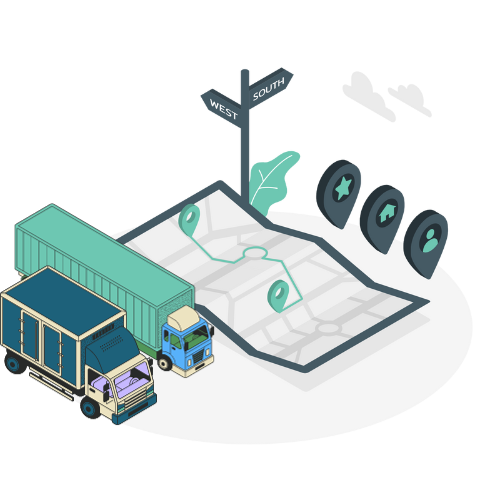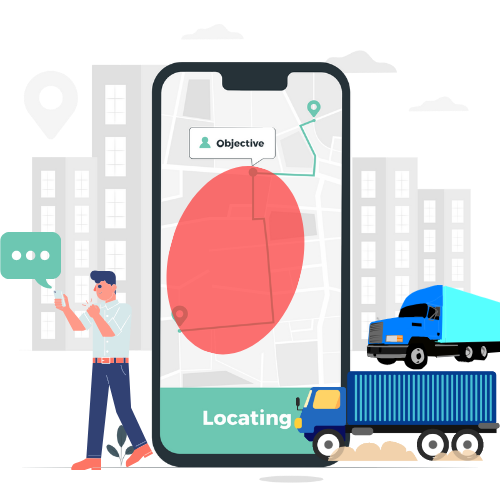a vehicle tracking system that allows tracking and controlling of vehicles via an online computer, smart phone, tablet, etc. Vehicle tracking systems make it possible to have an instantaneous and history tracking of vehicle speeds, the routes they followed etc.


Vehicle tracking systems use GPS technology to monitor and locate vehicles in real-time.These systems provide detailed insights into vehicle speed, location, and route history.Geofencing capabilities allow for setting virtual boundaries and receiving alerts for unauthorized movements.Enhanced security, improved fleet management, and increased operational efficiency are key benefits of vehicle tracking systems.

Route optimization involves finding the most efficient path or sequence of paths for a set of destinations. This concept is commonly applied in logistics, transportation, and delivery services to minimize costs, reduce travel time, and improve overall efficiency.

Driver behavior monitoring involves the systematic observation and analysis of how individuals operate vehicles. This practice is particularly important in fleet management, transportation, and logistics industries to ensure safe driving practices, reduce risks, and improve overall operational efficiency.

Vehicle maintenance is a crucial aspect of fleet management and individual vehicle ownership. Regular and proactive maintenance helps ensure the safety, reliability, and longevity of vehicles. Effective vehicle maintenance not only reduces the risk of breakdowns and accidents but also contributes to fuel efficiency and overall cost savings.

Customizable alerts play a crucial role in various systems and applications, allowing users to receive notifications tailored to their specific needs and preferences. Providing a user-friendly interface for configuring alerts and ensuring timely and accurate notifications can enhance the overall user experience and the effectiveness of the alerting system.

Vehicle utilization refers to the efficiency with which a vehicle or a fleet of vehicles is used to fulfill its intended purpose. Optimizing vehicle utilization is crucial for reducing costs, improving productivity, and maximizing the return on investment.

Trip scheduling involves planning and organizing journeys efficiently, whether it's for personal travel, business trips, or managing a fleet of vehicles. Effective trip scheduling can help optimize time, resources, and costs.

Vehicle Tracking Platform offer offline data tracking services, which means they will track your vehicle’s progress and whereabouts even if you are not on a cellular network. This service is extremely helpful if you’re on a long road trip and wish to avoid roaming charges.

The control center, which is where you’ll access your tracking software, should be easy and intuitive to use. Once installed on your computer or smartphone, it should provide everything you need at a glance. You don’t want to go searching for additional help when something goes wrong.

When a vehicle leaves a specific area, you can receive an alert. Geofencing is handy if you’re worried about a fleet vehicle traveling off-road or away from its destination. It will also remind you if it’s been sitting idle for too long-if your employee hasn’t moved in 30 minutes, you may want to get in touch with them.

Today’s GPS tracking systems aren’t just capable of keeping tabs on your vehicle. They can be outfitted with a wide range of add-ons and accessories, such as long-range antennas for better reception and enhanced antennas for improved cellular performance (which can increase battery life). Other add-ons include a data logger that tracks mileage, trip data, location history and more.